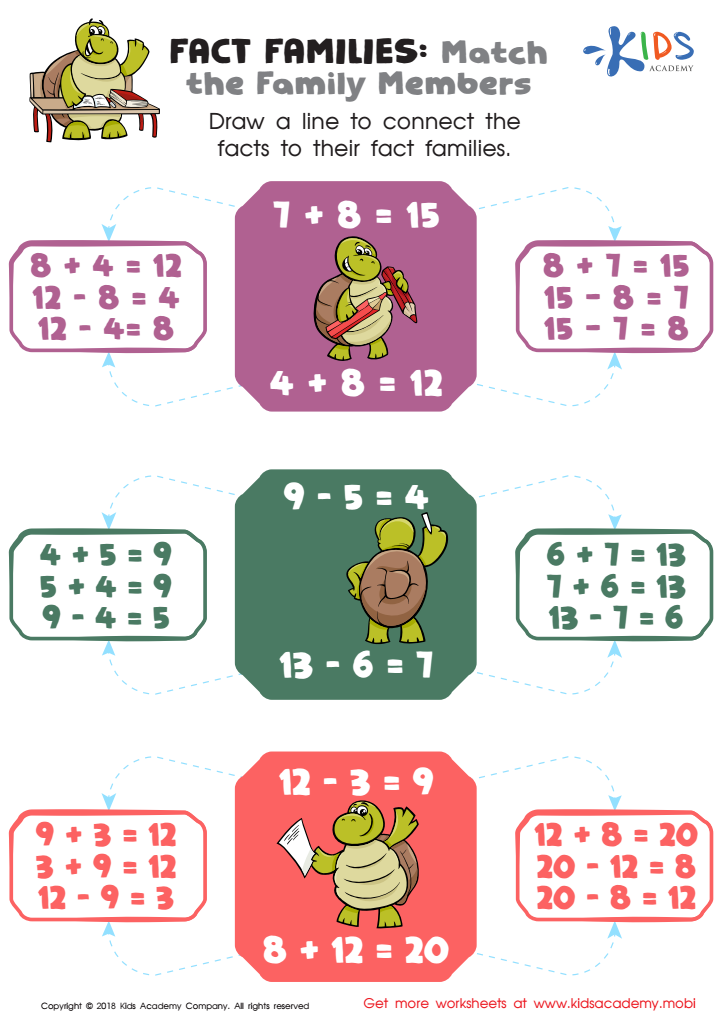Improve problem-solving skills Addition Worksheets for Ages 7-9
5 filtered results
-
From - To
Boost your child's problem-solving abilities with our specialized Addition Worksheets tailored for ages 7-9. These engaging activities combine fun and education, challenging young minds to master essential addition skills while enhancing critical thinking. Designed by experts, our worksheets feature diverse problems ranging from simple sums to more complex scenarios, fostering a deep understanding of mathematical concepts. Perfect for independent practice or collaborative learning, these worksheets help children build confidence and accuracy in problem-solving. Transform math practice into an enjoyable and rewarding experience that prepares your child for future academic success with our top-quality, printable resources.


Fact Families: Match Family Members Worksheet
Improving problem-solving skills, particularly in addition, for children aged 7-9 is crucial for several reasons. At this developmental stage, foundational math skills are being established, which serve as the building blocks for more complex mathematical concepts encountered later in education. Enhanced problem-solving abilities in addition equip children with critical thinking skills that are transferable to other subjects and real-life situations.
For parents and teachers, prioritizing the development of these skills means setting children up for academic success. Solid addition skills lead to greater confidence in math, which can reduce math anxiety and foster a positive attitude towards the subject. This positive attitude is vital because it encourages continuous effort and curiosity, key elements in lifelong learning.
Moreover, solving addition problems requires focused attention, persistence, and patience, qualities that are beneficial beyond mathematics. It promotes logical thinking and the ability to break down complex problems into manageable steps, which are valuable skills in everyday decision-making and problem-solving.
Supporting young learners in enhancing their addition skills also provides immediate benefits. It empowers children to tackle classroom tasks more efficiently and contributes to a more streamlined and less frustrating learning experience. Engaging in family or classroom activities that challenge addition problem-solving can also strengthen relationships and promote cooperative learning environments. Thus, investing effort into improving these skills at an early age reaps long-term educational and personal benefits.


 Assign to My Students
Assign to My Students


















